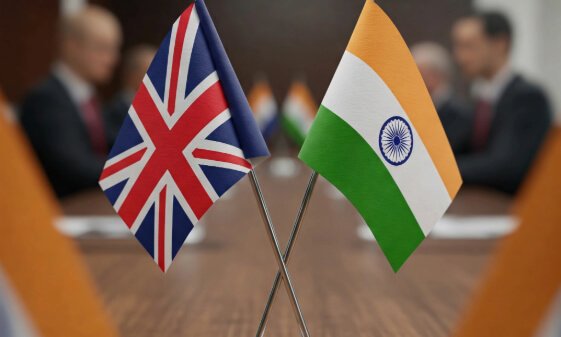UK to Monitor Religious Freedom in India Under New Foreign Policy Focus
India Listed alongside Nigeria, Pakistan, China, Syria, Afghanistan and Iraq
July 21, 2025
Britain has named India among 10 countries it will closely monitor for violations of religious freedom as part of a new foreign policy strategy. The move links the United Kingdom’s international relations more directly with the defence of freedom of religion or belief.
The announcement was made by David Smith, the Labour Member of Parliament for North Northumberland and the U.K. government’s Special Envoy for Freedom of Religion or Belief (FoRB), days before Prime Minister Narendra Modi’s scheduled visit to the United Kingdom at the invitation of the UK Prime Minister Keir Starmer. The special envoy is tasked with promoting religious freedom as a core part of British foreign policy, advocating for individuals facing persecution, engaging with international partners to address violations, and reporting directly to the Prime Minister.
Smith said the government would concentrate its diplomatic and advocacy efforts on 10 countries “where the need is greatest,” listing India alongside Vietnam, Algeria, Nigeria, Pakistan, China, Syria, Ukraine, Afghanistan and Iraq at a briefing held at the Foreign and Commonwealth Development Office, as reported by Religion Media Centre.
For countries under close monitoring, the U.K. does not impose automatic sanctions but uses diplomatic tools to influence change. This can include raising violations during bilateral talks, issuing public or private warnings, and supporting civil society groups working on religious freedom. In some cases, the U.K. may adjust aid or trade engagements by redirecting funding away from state institutions involved in violations or reviewing preferential trade terms, using these levers to press for measurable improvements.
The U.K.’s decision comes amid growing international attention on the state of religious minorities in India.
A 2024 report by the India Hate Lab documented a 74 percent rise in hate speech against minority communities compared to the previous year. The group recorded 1,165 incidents of hate speech, with nearly 99 percent targeting Muslims, many of which occurred during India’s national election campaign, according to the BBC.
Political leaders were among those responsible for the rise in hate speech, the report said, noting that hate speech surged at rallies, religious processions and cultural events. The data indicated that Uttar Pradesh, Maharashtra and Madhya Pradesh accounted for nearly half of all recorded incidents of hate speech.
Christians too have faced a sharp rise in hostilities, with 2024 marking the highest number of recorded attacks on the community in India’s history.
The United Christian Forum (UCF), in a report released in January 2025, documented 834 incidents of violence and intimidation against Christians in 2024, compared to 127 in 2014. These included 149 cases of physical assault, 209 property attacks and nearly 800 instances of threats or harassment.
The report described a pervasive climate of fear and impunity.
Of the 834 documented incidents, only 392 were registered as formal police cases. The rest remain unexamined.
The situation is particularly acute in the states of Uttar Pradesh and Chhattisgarh, which saw 209 and 165 attacks respectively.
David Smith, while announcing the U.K.’s new focus countries, referred to similar patterns of state hostility and extremist violence in other nations. He cited the example of Ahmadiyya Muslims in Pakistan, who are not recognised by the state and whose mosques are routinely desecrated, and Baháʼís in Iran and Christians in North Korea.
Critics have accused the U.K. of leveraging human rights to advance geopolitical interests. However, Smith argued that religious persecution often fuels instability and conflict and should therefore be addressed as a matter of peace and security.
The U.K. maintains that its focus on religious freedom stems from its legal and moral commitment to human rights, its historical role in establishing international norms and its belief that defending this right helps reduce conflict and promote global stability. The government sees religious persecution as a cause of violence, displacement and social unrest, and considers freedom of belief essential to building peaceful, plural societies. The focus also reflects domestic values, where freedom of religion or belief is protected in law and supported politically.
You have just read a News Briefing by Newsreel Asia, written to cut through the noise and present a single story for the day that matters to you. Certain briefings, based on media reports, seek to keep readers informed about events across India, others offer a perspective rooted in humanitarian concerns and some provide our own exclusive reporting. We encourage you to read the News Briefing each day. Our objective is to help you become not just an informed citizen, but an engaged and responsible one.

